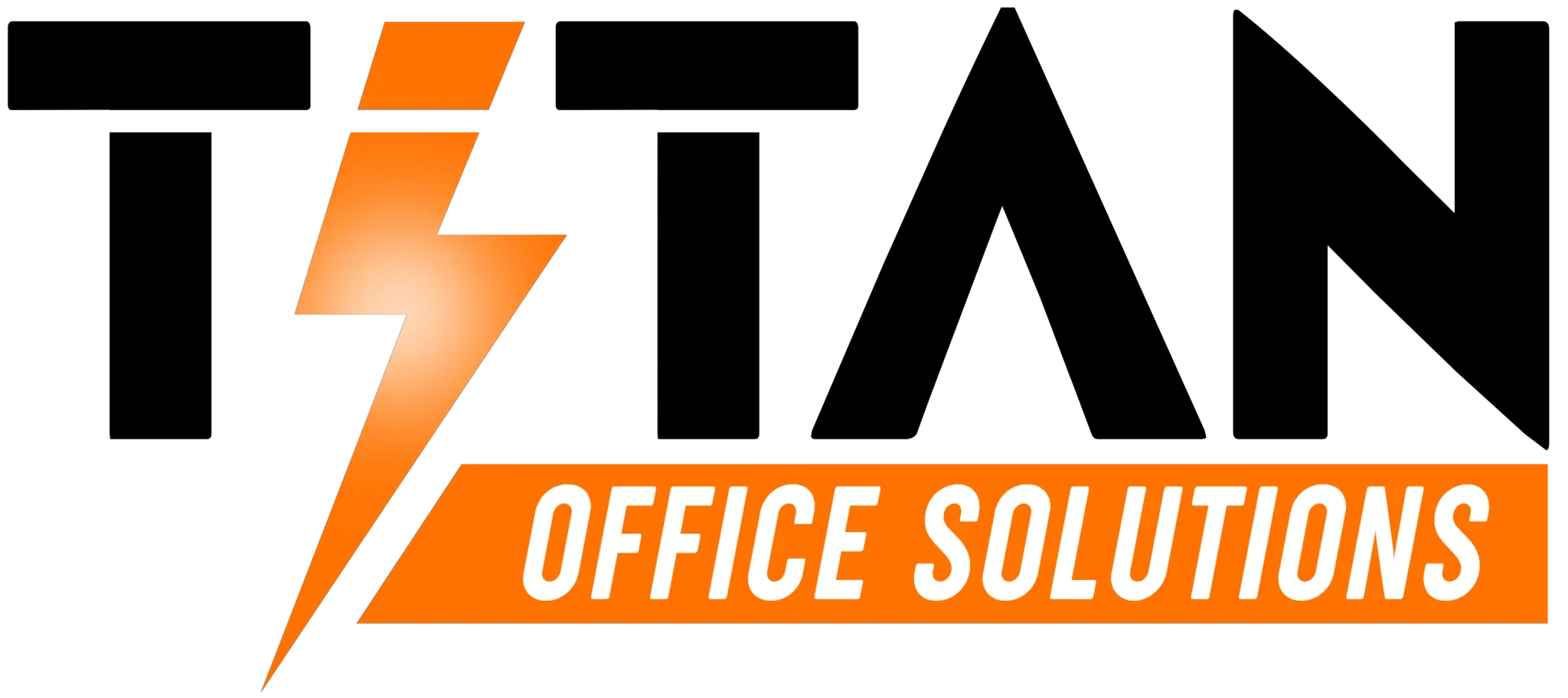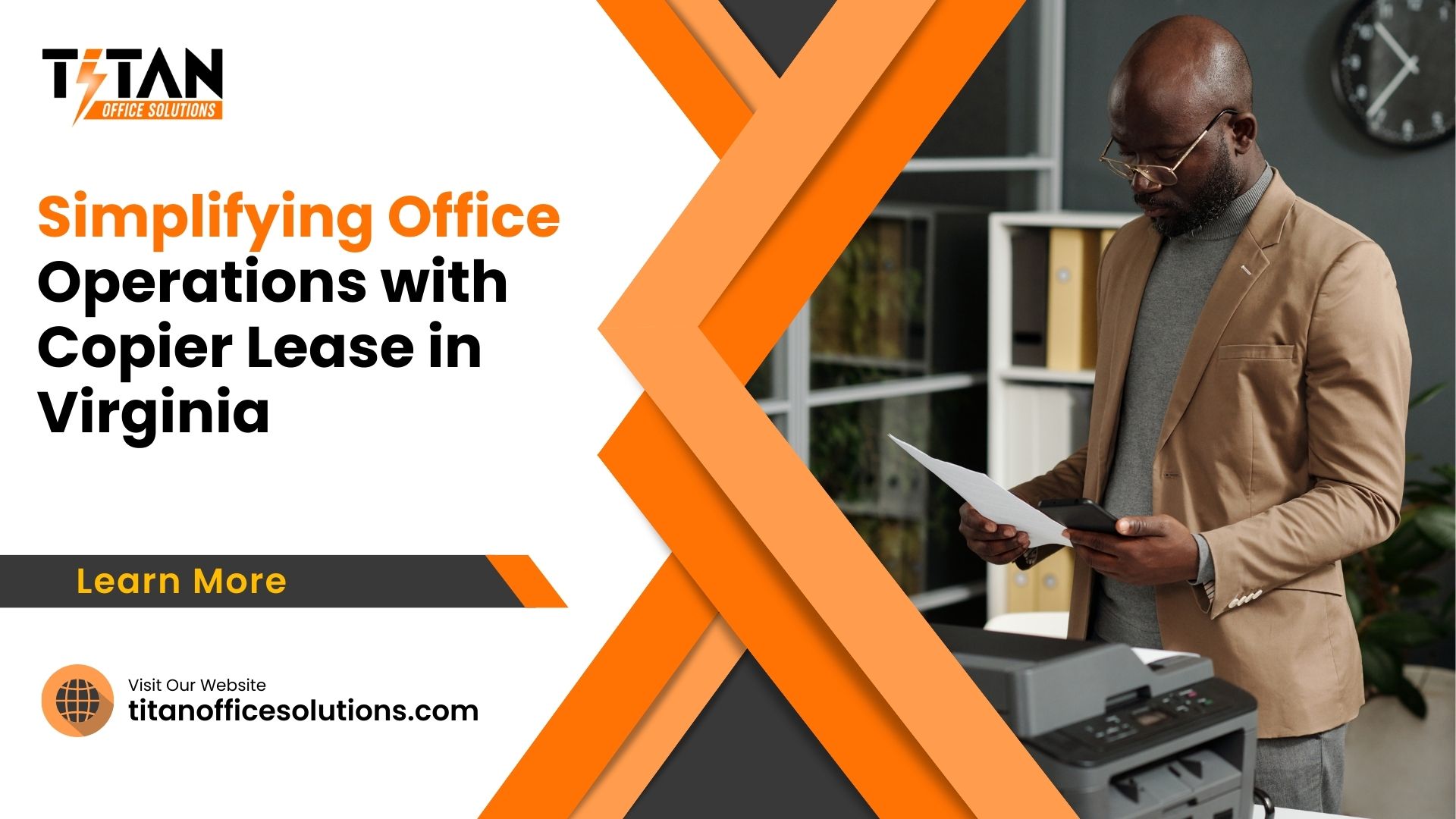Copier Lease in Virginia
Efficient office operations are crucial for the success of any business. One aspect that significantly contributes to this efficiency is having the right office equipment, particularly copiers and printers. In Virginia, many businesses are turning to copier leases as a cost-effective and flexible solution to meet their document management needs.
Copier leases offer numerous benefits, including lower upfront costs, access to the latest technology, and comprehensive maintenance support. This article delves into the intricacies of copier leases, providing detailed insights into how they work, the different types of leases available, and key considerations for businesses in Virginia.
Understanding Copier Leases
A copier lease is a contractual agreement where a business rents a copier for a specified period instead of purchasing it outright. This arrangement allows companies to avoid the significant upfront costs associated with buying a new copier. Instead, they make regular lease payments, which can be more manageable within a business’s budget.

Copier leases typically include maintenance and support services, ensuring the equipment remains in optimal working condition throughout the lease term. Leasing is particularly advantageous for businesses that require access to the latest technology without the commitment of ownership. By leasing, companies can easily upgrade their equipment at the end of the lease term, keeping pace with technological advancements.
Types of Copier Leases
There are several types of copier leases, each catering to different business needs and financial considerations. The most common types include:
- Fair Market Value (FMV) Lease: This type of lease, also known as an operating lease, allows businesses to use the copier for a specified period with the option to purchase it at the end of the lease term at its fair market value. FMV leases generally offer lower monthly payments and are ideal for businesses that prefer to upgrade their equipment frequently.
- Dollar Buyout Lease: Also known as a capital lease, this option allows businesses to purchase the copier at the end of the lease term for a nominal fee, typically $1. This type of lease often comes with higher monthly payments but is beneficial for businesses that intend to keep the equipment long-term.
- Short-term vs. Long-term Leases: Short-term leases, usually ranging from 12 to 24 months, offer flexibility for businesses with temporary or fluctuating needs. Long-term leases, often spanning 36 to 60 months, provide stability and often come with lower monthly payments.
- Leasing from Major Brands like Xerox: Major brands such as Xerox offer their leasing programs, providing a range of options tailored to different business requirements. Leasing from well-known brands can ensure reliability and access to the latest models.
Choosing the Right Copier for Your Business
Selecting the right copier involves evaluating several factors to ensure it meets your business needs. Key considerations include:
- Business Needs and Volume: Assess the volume of copying and printing your business requires. High-volume businesses may need robust, high-speed copiers, while smaller operations might do well with a basic model.
- Features: Modern copiers come with various features, such as scanning, faxing, and wireless connectivity. Multi-function copiers can perform several tasks, reducing the need for multiple devices.
- Local vs. National Leasing Companies: Deciding between local and national leasing companies depends on the level of service and support you expect. Local companies may offer more personalized service, while national firms might provide a broader range of options and potentially better pricing.
Lease Terms and Conditions
Understanding the terms and conditions of a copier lease is crucial to ensure you make an informed decision. Important aspects include:
- Common Terms Included in a Copier Lease Agreement: A standard lease agreement outlines the duration of the lease, payment schedules, responsibilities for maintenance and repairs, and conditions for upgrading or terminating the lease.
- Length of the Lease and Lease Period Options: Lease terms can vary, with common options including 12, 24, 36, 48, and 60-month periods. Longer leases often come with lower monthly payments but may commit you to older technology for a more extended period.
- Lease Payment Structures and Monthly Lease Costs: Payments are typically made monthly and can vary based on the type of lease and the model of the copier. Understanding the full cost, including any potential fees for maintenance or overuse, is essential.
- Negotiating Lease Terms: Businesses should not hesitate to negotiate lease terms to better suit their needs. This can include negotiating lower monthly payments, shorter lease terms, or better maintenance packages.
Costs Associated with Leasing a Copier

While leasing a copier can be more affordable than purchasing one outright, it’s important to understand the various costs involved:
- Initial Costs and Setup Fees: Some leases may require an initial down payment or setup fees to cover the installation and configuration of the copier.
- Monthly Lease Payments and What They Cover: Monthly payments typically include the cost of using the copier, regular maintenance, and sometimes supplies like toner and paper.
- Additional Costs: These can include expenses for repairs not covered under the lease agreement, costs for exceeding the allotted number of copies, and charges for early termination of the lease.
- Comparing the Cost of Leasing vs. Buying a Copier Outright: Leasing spreads out the cost over time, which can help with cash flow management. However, businesses should also consider the total cost over the lease term compared to the upfront cost and long-term maintenance of owning a copier.
Top Copier Leasing Companies in Virginia
Choosing a reputable leasing company is critical for ensuring a smooth leasing experience. Key factors to consider include:
- Criteria for Choosing a Reputable Leasing Company: Look for companies with a proven track record, positive customer reviews, comprehensive service offerings, and transparent pricing.
- Review of Top Leasing Companies: Research and reviews of the leading copier leasing companies in Virginia, highlighting their strengths and weaknesses.
- Advantages Offered by These Companies: Benefits such as flexible lease terms, excellent customer service, quick response times for maintenance issues, and competitive pricing.
The Copier Leasing Process
Leasing a copier involves several steps, each crucial to ensuring that your business gets the best possible deal and the right equipment for its needs. Understanding the leasing process can help you navigate it more effectively.
- Evaluating Business Needs and Selecting the Right Machine: Before entering into a lease, assess your business’s copying and printing requirements. Consider factors such as the volume of documents you need to produce, the features you require (e.g., scanning, faxing, color printing), and the physical space available for the machine. Multi-function copiers can be particularly beneficial for businesses that need a versatile solution. Once you have a clear understanding of your needs, you can select a copier model that meets those specifications.
- Signing the Lease Agreement and Installation: After selecting a copier, you will need to review and sign a lease agreement. This document outlines the terms and conditions of the lease, including the lease period, payment schedule, maintenance responsibilities, and any additional fees. It’s important to read the agreement carefully and negotiate any terms that do not align with your business needs. Once the agreement is signed, the leasing company will arrange for the delivery and installation of the copier at your office.
Maintaining Your Leased Copier
Proper maintenance is essential to ensure the longevity and optimal performance of your leased copier. Most lease agreements include maintenance services, but there are also steps you can take to keep your copier in good condition.

- Routine Maintenance Tips: Regular maintenance can prevent many common issues and extend the life of your copier. This includes keeping the copier clean, using the recommended paper and toner, and performing routine checks as advised by the manufacturer. Regularly cleaning the glass surface and internal components can help prevent paper jams and other malfunctions.
- Common Copier Malfunctions and Troubleshooting: Despite regular maintenance, copiers can still experience issues. Common problems include paper jams, streaks or lines on copies, and error codes. Many of these issues can be resolved with simple troubleshooting steps, such as checking for obstructions, replacing toner cartridges, and restarting the machine. If a problem persists, contact your leasing company’s support team for assistance.
- Services Typically Included in the Lease Agreement: Most copier leases include comprehensive maintenance and repair services. This means that if your copier malfunctions, the leasing company will provide prompt repairs at no additional cost. It’s important to understand what is covered under your maintenance agreement and how to request service when needed.
Upgrading and Replacing Copiers
At the end of your lease term, you have several options for upgrading or replacing your copier.
- Options at the End of the Lease Term: When your lease term ends, you can choose to return the copier, purchase it at a predetermined price, or upgrade to a newer model. Each option has its benefits, depending on your business needs and budget.
- Benefits of Upgrading to a Newer Model: Upgrading to a newer model can provide access to the latest technology and features, which can enhance productivity and efficiency. Newer copiers often come with improved functionality, better energy efficiency, and enhanced security features.
- Process for Returning the Copier and Starting a New Lease: If you decide to return the copier, ensure that it is in good condition to avoid any additional fees. The leasing company will typically handle the removal of the old machine. You can then enter into a new lease agreement for an upgraded model, following the same process as the initial lease.
Legal Aspects of Copier Leasing
Understanding the legal aspects of copier leasing can help you avoid potential pitfalls and ensure that you are fully aware of your responsibilities.
- Key Clauses to Look Out for in Lease Agreements: Key clauses in a lease agreement include the lease term, payment schedule, maintenance responsibilities, termination conditions, and penalties for early termination. Ensure that these clauses are clear and that you agree with all terms before signing.
- Legal Responsibilities of the Lessee and the Lessor: Both parties have legal responsibilities under the lease agreement. The lessee (your business) is responsible for making timely payments, maintaining the copier in good condition, and adhering to the terms of the lease. The lessor (leasing company) is responsible for providing the copier, performing maintenance and repairs, and offering support throughout the lease term.
- Understanding Liability and Insurance Requirements: Lease agreements often include clauses related to liability and insurance. This may involve insuring the copier against damage or theft and ensuring that your business is not held liable for any issues beyond its control. Understanding these requirements can help you avoid unexpected costs.
Copier Leasing vs. Printer Rental
While leasing a copier and renting a printer may seem similar, there are key differences that can impact your decision.
- Differences Between Leasing a Copier and Renting a Printer: Leasing a copier typically involves a longer-term commitment and is often more cost-effective for businesses with high-volume needs. Renting a printer, on the other hand, is usually a short-term solution and may be more suitable for temporary needs or specific projects.
- Cost Comparison and Business Suitability: Leasing a copier often comes with lower monthly payments and includes maintenance and support services, making it a cost-effective option for many businesses. Printer rentals may have higher monthly costs and may not include comprehensive support, but they offer greater flexibility for short-term use.
- Long-term Benefits of Leasing Over Renting: Leasing provides access to the latest technology, predictable monthly expenses, and comprehensive maintenance services. Over the long term, leasing can be more economical and provide greater value compared to renting.
Tips for Negotiating a Copier Lease
Effective negotiation can help you secure better terms and ensure that your copier lease meets your business needs.
- Strategies for Getting the Best Terms: Research multiple leasing companies and compare their offerings. Be prepared to negotiate on terms such as lease duration, monthly payments, and maintenance services. Highlight your business’s reliability and potential for long-term partnership to strengthen your negotiating position.
- Importance of Understanding Lease Terms and Conditions: Fully understanding the lease terms and conditions can help you identify areas where you can negotiate better terms. Pay attention to details such as early termination penalties, maintenance responsibilities, and upgrade options.
- How to Negotiate with Leasing Companies: Approach negotiations with a clear understanding of your needs and budget. Be transparent about your requirements and be prepared to discuss how the lease agreement can be mutually beneficial. Consider working with a leasing advisor or consultant if you need additional support.
Environmental Benefits of Leasing Copiers
Leasing copiers can also have positive environmental impacts, contributing to sustainability efforts.
- Sustainability Advantages of Leasing Over Buying: Leasing allows businesses to regularly upgrade to more energy-efficient models, reducing their overall energy consumption and environmental footprint. It also ensures that older models are properly recycled or refurbished.
- Programs Offered by Leasing Companies for Eco-friendly Practices: Many leasing companies offer programs that promote eco-friendly practices, such as recycling toner cartridges, using energy-efficient equipment, and supporting paperless workflows.
- Impact on Company’s Environmental Footprint: By leasing copiers, businesses can demonstrate their commitment to sustainability and reduce their environmental impact. This can also enhance their corporate social responsibility (CSR) profile and appeal to environmentally conscious customers.
Future Trends in Copier Leasing
Staying informed about future trends can help businesses prepare for changes in the copier leasing industry.
- Emerging Technologies and Their Impact on Copier Leasing: Discuss emerging technologies such as AI-driven diagnostics, cloud connectivity, and advanced security features. These innovations can enhance the functionality and efficiency of leased copiers.
- Predictions for the Future of Office Equipment Leasing: Provide insights into how the copier leasing industry is expected to evolve, including trends towards more flexible leasing terms, increased focus on sustainability, and integration of advanced technologies.
- How Businesses Can Prepare for These Changes: Offer practical advice on how businesses can stay ahead of these trends, such as by choosing leasing companies that invest in new technologies and staying informed about industry developments.
What People May Also Ask
How Much Does It Cost to Lease a Copier?
Costs can vary widely based on the type of copier, lease term, and additional services included. Typical monthly payments can range from $100 to $500.
What is Included in a Copier Lease Agreement?
A standard agreement covers the lease duration, payment terms, maintenance and repair services, and conditions for upgrades or termination.
Can I End My Lease Agreement Early?
Early termination is often possible but may come with penalties or fees. It’s essential to review the lease terms before signing.
What Happens at the End of the Lease Term?
At the end of the lease, businesses can choose to return the copier, purchase it at a predetermined price, or upgrade to a newer model.
Is Leasing Better Than Buying?
Leasing can be more cost-effective and provide access to the latest technology without significant upfront costs. However, buying might be better for businesses that prefer ownership and long-term cost savings.
Conclusion
Leasing a copier can provide significant benefits for businesses in Virginia, from cost savings and access to the latest technology to comprehensive maintenance support and environmental sustainability.
By understanding the leasing process, evaluating your business needs, and choosing a reputable leasing company, you can ensure a successful and beneficial leasing experience. Whether you’re looking to enhance your office operations, improve efficiency, or reduce your environmental footprint, copier leasing offers a flexible and cost-effective solution.
Consider the insights and tips provided in this article as you explore your copier leasing options and make informed decisions that support your business’s growth and success.
Titan Office Solutions
Phone: (704) 741-0821
Email: info@titanofficesolutions.com
Hours of Operations: Monday through Friday from 8:30 AM to 6 PM EST.
Website: titanofficesolutions.com

